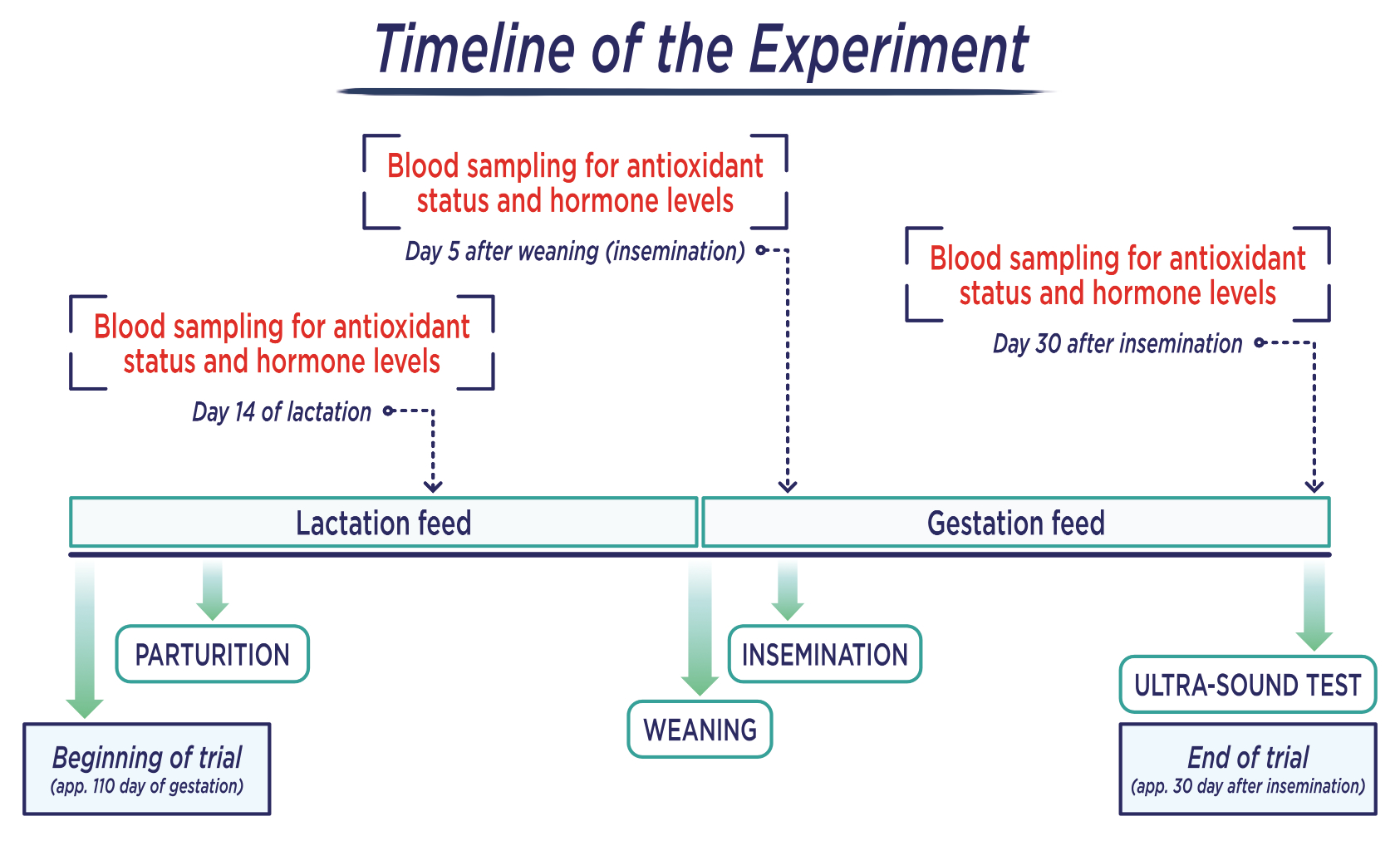Since polyunsaturated fatty acids play an important role in immune and reproductive functions, a better understanding of their role in the nutrition of breeding sows can lead to better performance and more sustainable pig production. Together with colleagues at Hungarian University of Agriculture and Life Sciences, we investigated the effect of omega-6 and omega-3 fatty acid supplementation on the antioxidant status and hormone levels of sows. Our communication summarizing our results was published in the scientific journal Veterinary Medicine and Science.
Effect of omega-3 polyunsaturated fatty acid supplementation on oxidative stress parameters and sex hormone levels of modern genotype sows
Róbert Roszkos, Tamás Tóth, George Bazar, Hedvig Fébel, Miklós Mézes
Sows are exposed to severe stress and hormonal challenges during their whole productive life. As polyunsaturated fatty acids play an important role in immune and reproductive functions, with a better understanding of their role in breeding sows’ nutrition, improved performance and more sustainable pig production can be achieved. In this study, we investigated the effects of omega-6 and omega-3 fatty acid supplementation on the antioxidant status and hormone levels of sows. A total of 48 Danish Large white × Danish Landrace sows were supplemented either with sunflower oil (SO) as a control group or with fish oil (FO) as experimental group at the same dose of 6.3 g/kg feed. Blood samples were collected on day 14 of lactation, 5 days after weaning (insemination), and 30 days after insemination. To estimate antioxidant and reproductive effects, the amounts of reduced glutathione (GSH), thiobarbituric acid reactive substance, the activity of glutathione peroxidase (GPx), serum 17β oestradiol (E2), progesterone (P4), and 6-keto prostaglandin F1α (6-keto PGF1α) levels were investigated. FO-based supplementation increased GPx activity on day 14 of lactation. Five days after weaning, the concentration of GSH in FO-fed sows was significantly higher than that in SO-fed sows. The E2 content of blood was significantly lower in the experimental group than in the control group for two of the three examined periods (day 14 of lactation and 30 days after insemination), whereas P4 levels were significantly higher in the experimental group 5 days after weaning. We found that 6-keto PGF1α levels were systematically lower in the experimental group throughout the trial. This study provides evidence of the major impact of omega-6 and -3 fatty acids on the tested hormone levels, which serve as precursors for the production of E2 and P4 but have an opposite effect on PGF2α production.

Access the full paper free of charge on the website of the journal:
